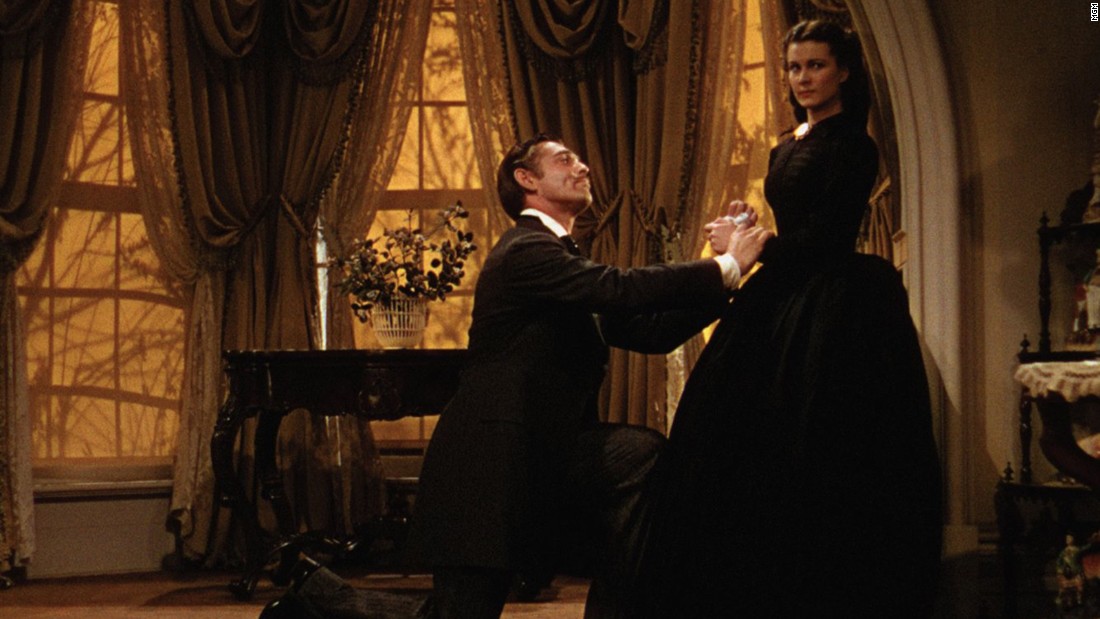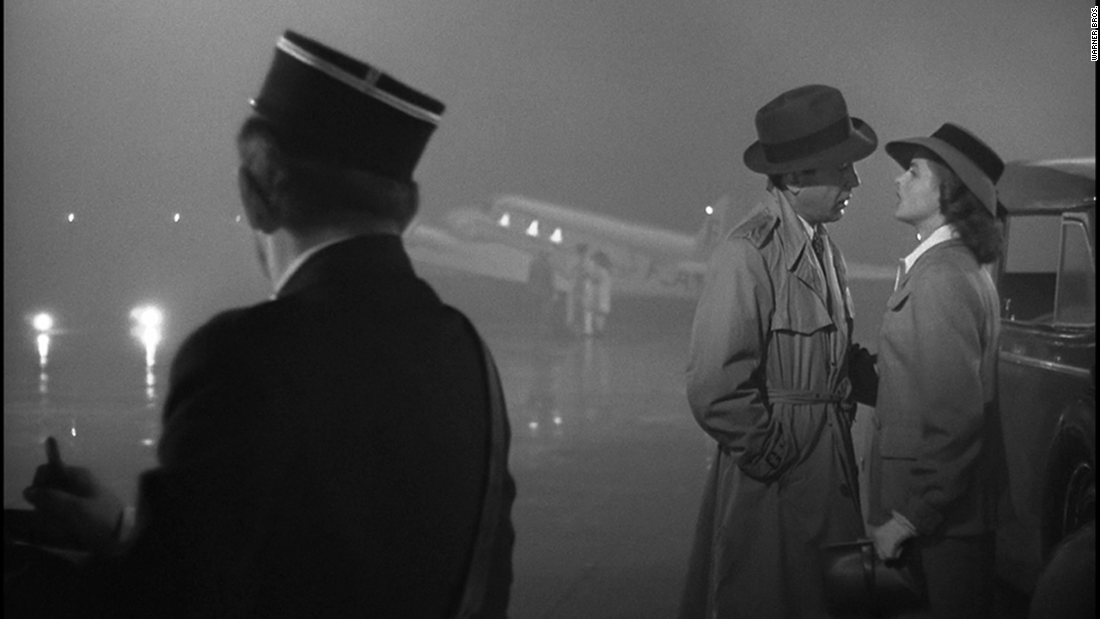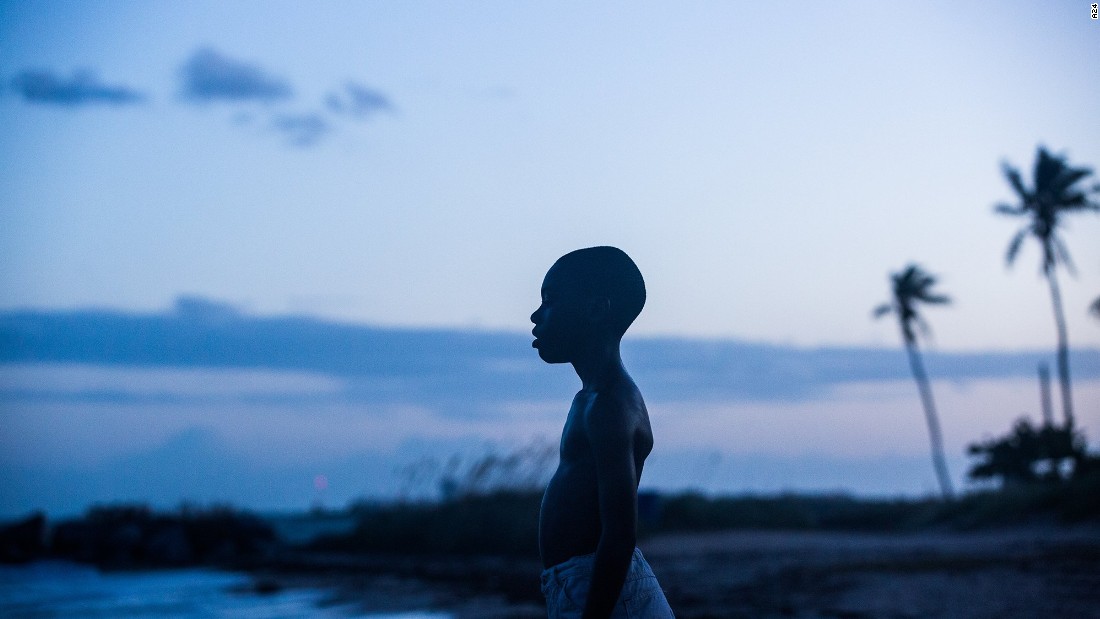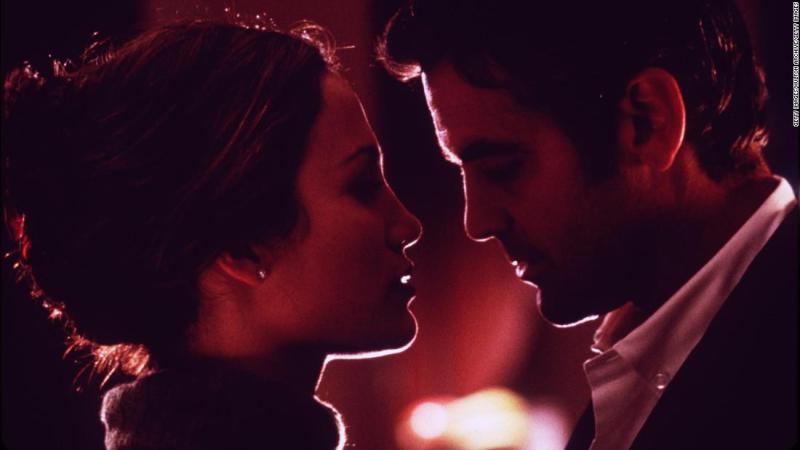What makes a movie a classic?
By: By Breeanna Hare, CNN
BUZZ NOTE: It is most important that you watch the video with this article, which may be accessed by clicking on the "SEEDED CONTENT" link just below this message, which will take you to the original source article.

What makes a movie a classic?
(CNN)I've never seen "Citizen Kane."
Or "Lawrence of Arabia," "Annie Hall" or "Saving Private Ryan."
I have seen "The Lord of the Rings: The Fellowship of the Ring" ... but I'm not sure I would call it a "classic" film.
So who's got it right? Me, a person who can quote the most famous movie lines of all time with ease , or the American Film Institute , which lists all of those movies among its top 100 American ever made?
Before you answer with angry, disappointed emails, consider the perspective of classic movie expert and TCM host Ben Mankiewicz : If we're debating what qualifies as a classic movie, then we're both correct.
"I've probably been asked that question more than any other. Everybody says, 'So what makes a film a classic?' And the answer to that is, I don't know. It really depends," Mankiewicz explains. "What I do know is that if you're arguing about it, then I think we're doing our job. This question is supposed to be argued over, and it's supposed to be argued over passionately."
Below, "The Essentials" host breaks down his argument for what makes a classic, what that label means, and six movies he thinks deserve that title.
We hope that you passionately disagree. And if you do, know that you're doing something right.
Let's start with the main question: What makes a movie a classic film?
Ben Mankiewicz: I think that two things have to apply:
- The movie has to have some emotional resonance that lasts beyond the immediate viewing of the movie.
- The movie has to have some sort of cinematic importance.
Take a movie like "Gone With the Wind." It's okay with me if I never see "Gone With the Wind" again; it has no real emotional resonance for me. When "Gone With the Wind" came out in 1939, there was very little criticism about its nonchalant, at best, approach to slavery. Now here we are, 80 years later, and most people would agree that's a major shortcoming. To some, myself included, it's such a shortcoming that I don't really like the film.

But "Gone With the Wind" changed the way movies were made. More than that, it changed how directors and producers could conceive of a movie. They saw this grand canvas to tell a story, and it taught them that that canvas could be far broader than they'd ever imagined. That makes "Gone With the Wind" a classic, whether you dislike it or whether you think it's one of the best movies ever made.
But there does seem to be some sort of canon that's generally agreed upon by film critics, historians and film buffs. How do those movies get that kind of consensus?
Mankiewicz: Talking about what makes a classic is a challenge, because in every single answer I want to say, "Well, this movie has stood the test of time." But I do not want to say, "This movie has stood the test of time," because it's a cliché and it's come to mean nothing.
That said, there are some movies that have simply stood the test of time. (You have to ask), does it hold up as a great piece of art? I'm not trying to sound fancy when I say that, but these are collaborative works of art.
Why does it matter whether a movie gets the "classic" label?
Mankiewicz: I mean, big picture, it doesn't. Little picture, it means everything, because movies reach us emotionally. And when we are emotional, we also try to share that feeling with others.
If somebody we care about doesn't react the same way that we did (to a movie), we want to know why. Right? If somebody else sees "Casablanca" and isn't moved by it, and it's somebody I care about, my God, I want to know why. I want to know what's wrong with them. And I want to know if I can help.

Humphrey Bogart and Ingrid Bergman in Michael Curtiz's "Casablanca."
If I love a movie, I desperately want other people to love it. If somebody isn't dazzled by a movie that I love, if somebody sees Stanley Kubrick's "Paths of Glory" and thinks, "Meh, it was boring. There was too much talking" -- I mean, I don't want to walk away from that person. I want to go nose-to-nose with that person like Earl Weaver and Ron Luciano , umpire to manager, in a 1975 ball game. You know? I want us to be spitting in each other's faces, we're so angry defending our points.
Movies prompt an emotional reaction, and so this idea of what makes a movie a classic prompts those conversations. We're better people because of those conversations. We're better movie lovers when we have those conversations.
Do you think the passing of time can change what we consider to be a classic?
Mankiewicz: I think as we grow as a culture, we start shifting our opinions about some of these classic films. The passage of time makes a difference in how we assess movies, and it should. That's progress.
It's okay to change your mind on a film. It's okay to change your mind on a film individually, and it's okay for us, as a society, to change our mind on films collectively.
All of that is valid for a conversation about what makes a movie a classic. It also means, I suppose, that a movie could conceivably lose its classic status.
What's a classic that you would start somebody out on -- a movie that you'd describe as a classic example of a classic film ?
Mankiewicz: First of all, I hate that question. But with a gun to my head, I would say:
- "Casablanca" There has never been a better example of studio filmmaking. This was Warner Bros. at its strongest, at its toughest, at its most robust. This is three sets, essentially, of screenwriters coming together to work with a great director, Michael Curtiz, and an incredible cast, led by Humphrey Bogart and Ingrid Bergman and Paul Henreid, to bring you this incredibly powerful, emotional story that we can all relate to.
- "Paths of Glory" from 1957. Stanley Kubrick and Kirk Douglas -- who produced the film, too, along with James B. Harris -- they tell this powerful war story that will enrage you, even if you don't like war movies.
- "Random Harvest" from 1942, with Ronald Colman and Greer Garson, one of the great actresses to ever walk the earth. If you're not crying at the end of "Random Harvest," I'm sorry, but you have no heart and you have no soul.
- "Out of Sight," the Steven Soderbergh film from 1998. George Clooney, Jennifer Lopez, Don Cheadle in all his greatness. Ving Rhames, (who) is terrific in the movie, and Steve Zahn -- you can't be funnier than Steve Zahn is in "Out of Sight." Catherine Keener, brilliant in a small role. There's so many talented actors coming together with a perfect script and expert direction. I saw it in a movie theater and (when) I came out, I pumped my fist. I remember thinking, "Why am I pumping my fist?" And I thought, "Man, if every movie gave me this feeling, this intense emotion, I would go see a movie in a theater with other people every single night." Which would be a pretty great life.

Jennifer Lopez and George Clooney star in Steven Soderbergh's "Out of Sight."
- "The Godfather" is another movie everybody should see. Yes, it's quite violent at times, but "The Godfather" is really a family story. And I think that's why it resonates with so many people, and why it is just as good today as it was in 1972.
- "The Godfather: Part II," I think it's fair to say, is the greatest sequel ever made, because there are many people who think it's better than "The Godfather." I don't even know if I'm one of those people. They're both perfect. They're both brilliant.
The films considered to be "classics" are almost always by white men. Why aren't films by people of color and women immediately brought up when talking about this?
That was the reality in Hollywood, certainly once sound came to the movies. And that was mostly the reality in Europe, too.
You can shrug your shoulders and say, "That's a sign of the times," but it's an ugly part of our shared history. The good news is that, I think, no longer is merely lip service being paid to female directors and directors of color. There's great art being made by people of color, and by women, and they're being given an opportunity to make films. And those stories are vitally important.
I think what's critical now, which we missed for years and years and years, is to listen to those voices. If we'd listened to those voices more from the 1930s, '40s, '50s and '60s on, we would have made consistently better films.

A scene from Barry Jenkins' Oscar-winning film "Moonlight."
No conversation about the great directors of today would fail to include Barry Jenkins, who wrote and directed "Moonlight," or would fail to include Ava DuVernay . These are brilliant storytellers, and we're all better for it. That seems obvious, but clearly it wasn't obvious for a very long time.
So then, who decides what it means to be a classic film?
You do. We all get to decide, collectively, as a society.
It's one of the great things about movies in this incredibly divisive time, where even a glance at your phone, or a look at the morning paper, or a quick look at CNN primetime will reveal that we have nothing in common with our neighbors. And we might hate our neighbors, and our neighbors might hate us. (But) millions of us love movies, and that love of movies does provide us some common ground.
Not to go full kumbaya, but the movies do bring us together, and I can't think of a time where some sense of shared history, some sense of common ground, means more than today.
Editor's Note: TCM and CNN share a parent company, WarnerMedia.
Tags
Who is online
582 visitors



NOBODY has the perfect answer to the question: "What makes a movie a classic?", but this article has some pretty good ideas about it.
just one iconic scene can do it.
Good idea. I'll think of some examples. Can you give us an example or two?
michael's eradication of the competition in the godfather, sharon stone in basic instinct, or a number of john belushi scenes in animal house first come to mind. you name the classic movie and I'll give you the iconic scene. please bear in mind that I only like to watch irreverent comedies and/or movies that feature lots of gratuitous sex and violence. although I did amaze my young children when they re-released the wizard of oz to TV back in the 90's(?) and I sang along to the songs. I know most of the dialog to clockwork orange, and most john wayne and clint eastwood movies too.
I'd say an iconic and provocative scene in Casablanca was when Rick told Sam never to play... that instant when he saw Ilsa sitting there.
An iconic scene in The Good Earth was when Wang (Paul Muni) and O-Lan (Louise Rainer) were just married and she was followiing him home (walking behind was traditional) and she picked up the peach pit he just threw away, which she planted and it grew into a mature peach tree beside their home during their years together. Here she is burying the pit at night...
And an iconic scene in The Third Man was when Harry Lime (Orson Welles), presumed to be dead, was first seen in the movie, his face emerging from the shadows. That was the image I used as the group avatar for my former "Classic Cinema" group.
POLITICS!!!! RELIGION!!!! No, neither of them, but maybe they caught your eye and if you were interested in movies that weren't computer generated, animated, dungeons and dragons, car races and spectacular crashes, you might actually be interested in this article.
Well, at least I enjoyed this article, especially the video, and I guess Charger did too. It'll be a long time before I try to distract the mob from politics again.
What makes a movie a classic is an interesting question. Many tastes, the first movie to have an improvement, best selling of the time, the actors, directors ect ect hard to compare
That's right. Different movie critics and organizations use different criteria, and so come up with different results.
Let's see if one or two members would enjoy watching for free (perhaps again) one of the greatest movies ever made, certainly my favourite, CASABLANCA .
Just click this link....
NEVER MIND. Casablanca would not open in the USA.
A classic film is a movie many (not a few) people have seen numerous times, and still enjoy quite a bit even after numerous viewings.
Gone With The Wind is a classic film. So is Casablanca, The Philadelphia Story, Mr Smith Goes To Washington, Its A Wonderful Life, The Searchers, Rio Bravo, Mary Poppins, The Great Escape, Butch Cassidy and the Sundance Kid, Dirty Harry, The Godfather , The Deerhunter, and many more.
The Shawshank Redemption, Gran Torino, and Saving Private Ryan are more recent classics.
I would say, imo a movie has to be at least 10 years old to be considered for classic category.
I'd say 20 years at least. At 10 years they could have the quality that destines them for being classic.